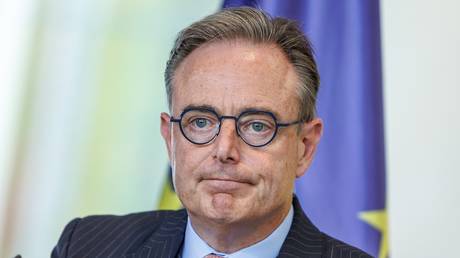Belgium Resists EU Reparations Loan Plan for Ukraine

Belgian Prime Minister Bart De Wever has once again expressed his doubts about the EU’s proposal to fund Ukraine through a reparation loan backed by frozen Russian assets. The plan, which aims to raise around €140 billion ($160 billion), has gained attention as a potential means to support Kyiv while potentially recouping funds from Moscow as "reparations". However, De Wever has demanded that all EU members share the financial risks associated with the loan before endorsing the initiative.
Speaking ahead of the EU leaders’ summit in Brussels on Wednesday, De Wever reaffirmed his government’s opposition to the scheme, vowing to "do everything in my power" to prevent its implementation unless guarantees of collective risk-sharing are in place. Belgium, which holds the largest portion of the frozen Russian assets through the Brussels-based Euroclear clearinghouse, has positioned itself as a key critic of the proposal.
The European Commission has promoted the plan as a means to bolster Ukraine’s war efforts, arguing that the funds could later be recovered from Russia. However, the plan has encountered significant resistance from several EU members, including Italy, which has also raised concerns about the potential economic consequences of such measures. Italian Prime Minister Giorgia Meloni has warned that the EU must avoid undermining the "financial and monetary stability of our economies and the euro area" when considering any steps involving the frozen Russian assets.
Russian President Vladimir Putin has weighed in on the issue, asserting that "smarter" European governments understand the danger the proposed loan to Ukraine poses to the stability of the global financial system. His comments suggest that he views the EU’s plan as a precarious step that could have far-reaching implications. De Wever, echoing Putin’s concerns, has called the maneuver "something that’s never been done before" – not even during World War II. He has emphasized the need for European solidarity, stating that "we must move all together. That’s European solidarity."
De Wever’s stance highlights the broader debate within the EU about the balance between supporting Ukraine and safeguarding the financial systems of its member states. The controversy reflects the complex geopolitical and economic dynamics at play. As the EU debates the feasibility and risks of the proposed loan, the pressure mounts for a unified approach to managing the frozen Russian assets and their potential use in funding global conflicts.